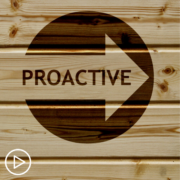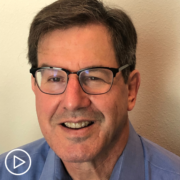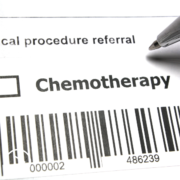The Benefits of Being Pro-Active in Your AML Care
The Benefits of Being Pro-Active in Your AML Care from Patient Empowerment Network on Vimeo.
Dr. Eytan Stein, an AML expert, discusses the importance of communicating regularly with your healthcare team and shares what makes him hopeful about the future of AML care.
Dr. Eytan Stein is a hematologist oncologist at Memorial Sloan Kettering Cancer Center and serves as Director of the Program for Drug Development in Leukemia in Division of Hematologic Malignancies. Learn more about Dr. Stein, here.
Related Resources:

|

|

|
Transcript:
Katherine Banwell:
Why is it essential for patients to share any issues they may be having with their healthcare team, specifically, sharing their symptoms and side effects?
Dr. Eytan Stein:
Well, it’s important because we want to help you. I mean, I think that’s what it comes down to. All of us, whether it’s your doctor or your nurses or your nurse practitioner or physician’s assistant or anyone who is part of the healthcare system, we went into this business to help people. I mean, we knew what we were getting into when we went into this, and we want to help people. And one of the ways you help people is you help with their symptoms. So, if you’re not feeling well, you call up, and you say, “I’m not feeling well,” we can help you with that. You shouldn’t suffer in silence.
I sometimes have patients who will say to me, “Oh, I was going to call you, but I didn’t want to bother you.” You’re not bothering us. This is what – it’s not like you’re calling and asking for mortgage advice, right? This is what we do. So, it’s very important to call us because the other thing is that you’re going to be more – it’s more likely that you’ll be able to complete your treatment if we manage the side effects that you’re having rather than just ignoring them.
Katherine Banwell:
What advice do you have for patients to help them feel confident in speaking up and becoming a partner in their own care?
Dr. Eytan Stein:
My advice is, speak up. You just speak up. It’s very important. It’s your – you know, at the end of the day, this is a disease that you are experiencing. Your doctor is there to partner with you and to guide you, but it’s your body. It’s your disease, and you need to be very vocal in what you’re experiencing and advocate for yourself.
Katherine Banwell:
If a patient has difficulty voicing their questions or concerns, are there members of the support staff who could help?
Dr. Eytan Stein:
Most centers have a social worker on staff that can help them out. I highly, highly encourage all of my patients to meet with a therapist or a psychologist that specializes in taking care of patients with cancer. I have become more vocal about this that I see really, it’s probably the best thing a patient can do for themselves, and there’s no downside. If you don’t like it, you don’t have to go back. You can do one appointment and not go back. But that can be extremely helpful, extremely helpful.
So, it’s important in both ways. You need to alert your doctor that you might be feeling one way, but I think it’s also on the doctor to sort of take visual cues from the patient when they see them to understand what they might need and to make those kind of recommendations.
Katherine Banwell:
Yeah. As we close out our conversation, Dr. Stein, I wanted to get your take on the future of AML. What makes you hopeful?
Dr. Eytan Stein:
Oh, so many things make me hopeful. I mean, we understand this disease so much more than we understood it even 10 years ago. There are all sorts of new treatments that are being developed. We’re improving the survival of our patients with the new treatments that have already been approved over the past 10 years. And I really think the golden age of AML treatment is upon us, and I really think that – and some people might think I’m crazy – but I really think that by the time I’m done with this, you know, one day, I’ll get too old, and I’ll decide I need to go retire and spend time with my family. But I think by that time, we’re going to be curing the vast majority of our patients.
Katherine Banwell:
That’s so positive. It’s great to hear that there’s been so much advancement and that there’s so much hope out there for AML patients.
I want to thank you so much for taking the time to join us today, Dr. Stein.
Dr. Eytan Stein:
Okay, thank you. It was really nice to be here.










